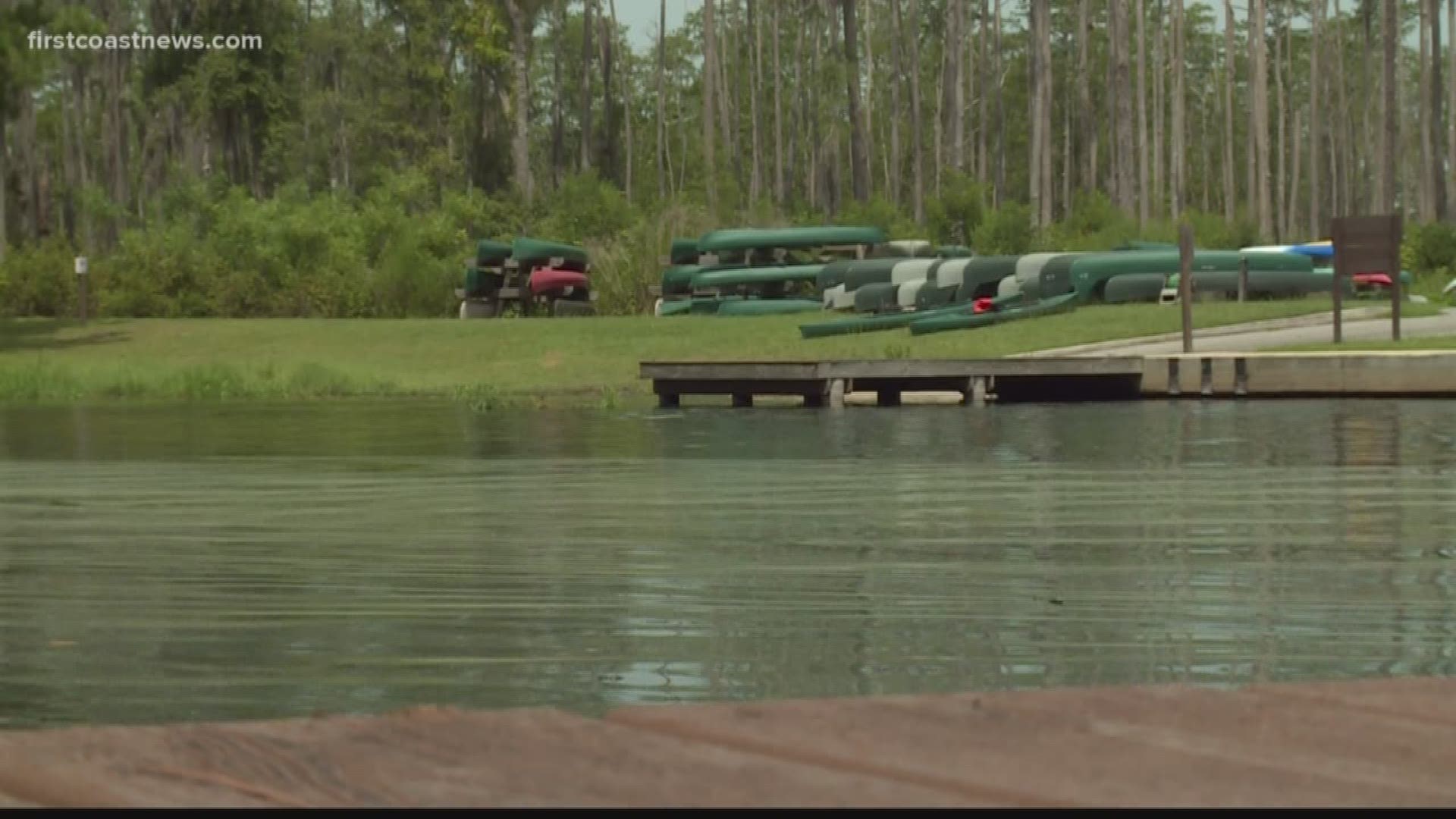JACKSONVILLE, Fla. — The U.S. Army Corps of Engineers announced Friday it has reversed its decision to allow mining near the Okefenokee.
The decision came after a request from Georgia Sen. Jon Ossoff to restore federal protections of the wetlands in the country’s largest blackwater swamp due to its cultural and historical importance to the Muscogee (Creek) Nation.
Alabama-based Twin Pines Minerals, as previously reported by Savannah Morning News, submitted applications in late 2020 for multiple permits from the Georgia Environmental Protection Division to mine titanium oxide, often used in whitening products, as well as other heavy metals on more than 500 acres of ancient beach dunes called Trail Ridge in Charlton County. The dunes, which border the swamp and help contain it, are within 3 miles of the Okefenokee National Refuge, a U.S. Fish and Wildlife Service property.
“My whole team and I are exhilarated and thrilled to announce this restoration of protection for the Okefenokee Wildlife Refuge and surrounding wetlands,” Ossoff said in an interview with Savannah Morning News.
According to Ossoff, at his request the U.S. Fish and Wildlife Service redoubled its efforts to analyze the potential damage and found that the risk the mine posed to the swamp was extreme.
“The Okefenokee is precious for all Georgians and it is sacred land for the Muscogee Creek Nation,” Ossoff said. In addition to working with a range of government agencies, Ossoff said he worked with tribal leadership.
The corps concluded it did not properly consult with the Muscogee Creek Nation when initially granting mining rights.
A Friday memorandum issued by Michael Connor, assistant secretary of the Army (Civil Works), noted that the previous determination did not protect several hundred acres of wetlands in the Okefenokee and no longer stands.
This decision came bundled with another mine, the Rosemont mine proposed by Toronto-based Hudbay Materials out west in the Santa Rita Mountains in Arizona, which also has had its decision by the corps changed based on the fact that the relevant tribal nations weren't consulted.
Connor pointed to a Jan. 26, 2021 memorandum from President Joe Biden, who directed all federal agencies to engage in “regular, meaningful, and robust consultation with Tribal Nations on Federal actions that have Tribal implications."
He also noted an April 20, 2021 memo from the acting assistant secretary of the Army for Civil Works, which changed a policy that previously stated tribal nations didn't need to be consulted in the Army Corps of Engineers' decisions about whether waters are, or are not, under its jurisdiction for protection and management.
According to the memorandum, the Muscogee Creek Nation sent a letter dated April 10, 2020, stating they had not been officially consulted on the Twin Pines mine, and later they asked the Savannah District of the Corps in a March 2021 email about the process to be consulted on the decision as to whether the wetlands are under the auspices of the Army Corps of Engineers.
The Savannah District of the Corps concluded that 556 acres of wetlands were excluded under the Navigable Waters Protection Rule, leaving them outside the Army Corps of Engineers’ federal protections for wetlands and under the jurisdiction of Georgia to decide how to protect them, although this didn't include the Muscogee Creek Nation's input.
Since then, the fate of the Okefenokee has been awaiting the issuance of permits from the Georgia EPD. In the meantime, environmentalists have shared their concerns over the environmental and hydrological impacts of the mining facility.
Opposition to the mine stemmed from plenty of sources of concern, from the potential of the mining operations to drain the wetlands to questions about allegedly false claims in the permit applications.
In March 2022, opposition to the mine was dealt a blow when a bipartisan bill aimed at protecting the Okefenokee died in the Georgia General Assembly.
With Connor's June 3 memorandum, the previous decision that the Okefenokee's wetlands are not protected is null and void for Twin Pines Minerals. However, the memorandum does say that Twin Pines Minerals can go back to the drawing board and reapply, should they choose to do so, taking into consideration wetland protections and consultation with the Muscogee Creek Nation.
"I just want to thank everyone that joined in this effort," Ossoff said, including people of all political persuasions, environmentalists and conservationists. "This is a wonder of the world, and we've averted disaster by restoring these protections."
Marisa Mecke is an environmental journalist covering climate change and the environment. She can be reached at mmecke@gannett.com or by phone at (912) 328-4411.

